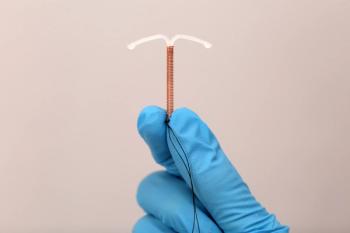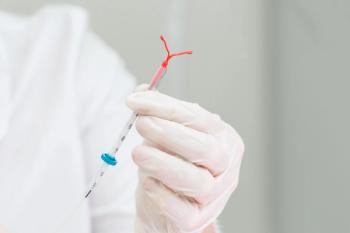
Contraception
Latest News
Latest Videos

CME Content
More News

Review some of the top stories from the Contemporary OB/GYN website over the last week, and catch up on anything you may have missed.

The Biden-Harris administration, has released comprehensive guidance through Frequently Asked Questions to eliminate barriers to contraception, ensuring access to FDA-approved contraceptives at no cost, following President Biden's 2023 Executive Order.

Agile Therapeutics has provided insights on strengthening the Affordable Care Act's contraceptive coverage, with a recent House Committee report revealing barriers, inequalities, and recommended changes.

The Supreme Court's upcoming decision on mifepristone, a key abortion medication, may alter access, introducing potential restrictions and impacting the landscape of abortion rights.

Daré Bioscience has commenced a pivotal phase 3 clinical trial for ovaprene, an intravaginal contraceptive that releases a locally acting agent to prevent sperm entry into the cervical canal, marking a significant step towards a non-hormonal contraceptive option for women.

A recent study reveals gaps in reproductive health services for women with disabilities, highlighting a 69% likelihood of encountering barriers, including logistical and access challenges.

Review some of the top stories from the Contemporary OB/GYN website over the last week, and catch up on anything you may have missed.

The US District Court for the District of Arizona issued an order against Arizona-based company Smart Women’s Choice, Inc, following a complaint by the US Department of Justice, alleging the distribution of unapproved new drugs in violation of the Federal Food, Drug, and Cosmetic Act.

In a recent study, patients who were treated for heavy menstrual bleeding with the levonorgestrel intrauterine system had similar changes in bleeding-related quality of life as those using combined oral contraceptives for treatment.

Women of reproductive age often use combined hormonal contraceptives, which are available orally, as a vaginal ring, or as a transdermal patch. However, CHCs are associated with increased risks of venous thromboembolism and myocardial infarction (MI).

In a recent study, venous thromboembolism risk among oral contraceptive users was accurately measured by genetic variants.

Review some of the top stories from the Contemporary OB/GYN website over the last week, and catch up on anything you may have missed.

In a recent study, negative mental health symptoms such as increased anxiety were observed among combined oral contraceptive users when treatment was paused.

In a recent study, active-duty US Army servicewomen after did not use long-active reversible contraception within 3 months after delivery.

In a recent study, transgender women had reduced sperm quality compared to cisgender men, and transgender men used contraception at similar rates to cisgender women.

Matthew Zerden, MD, provides various tips and resources for ob-gyn hospitalists wanting to implement postpartum LARCs in their institution, according to his presentation at the 2023 Society of OB/GYN Hospitalists Annual Clinical Meeting in Chicago, Illinois.

The IPP LARC program “allowed for the provision of LARCs for women who had limited to no funds or access, especially in the postpartum period,” according to study authors of a poster presented at the 2023 Society of OB/GYN Hospitalists Annual Clinical Meeting in Chicago, Illinois.

Marci Bowers, MD, shares the biggest takeaways from her presentation on transgender reproductive care, presented at the 2023 Society of OB/GYN Hospitalists Annual Clinical Meeting in Chicago, Illinois.

Angela Dempsey, MD, MPH, gives her insights on how to advocate for your patients in post-Roe America, which was presented during her session at the recent 2023 Society of OB/GYN Hospitalists Annual Clinical Meeting in Chicago, Illinois.

In a recent study, effective contraceptive use was decreased among women enrolled in both Medicaid and Medicare compared to Medicaid only.

Review some of the top stories from the Contemporary OB/GYN website over the last week, and catch up on anything you may have missed.

In a recent study, patients were more likely to receive contraceptive counseling following a telephone-based intervention documented in electronic medical records.

In a recent study, individuals with intrauterine device placement after abortion were commonly satisfied with the device and continued use after 1 year.

In a recent study, patients chose different methods of contraception or sterilization at delivery based on their presenting malignancy.

In a recent study, rates of abnormal bleeding among etonogestrel contraceptive implant users did not differ between a curcumin and a placebo group.














